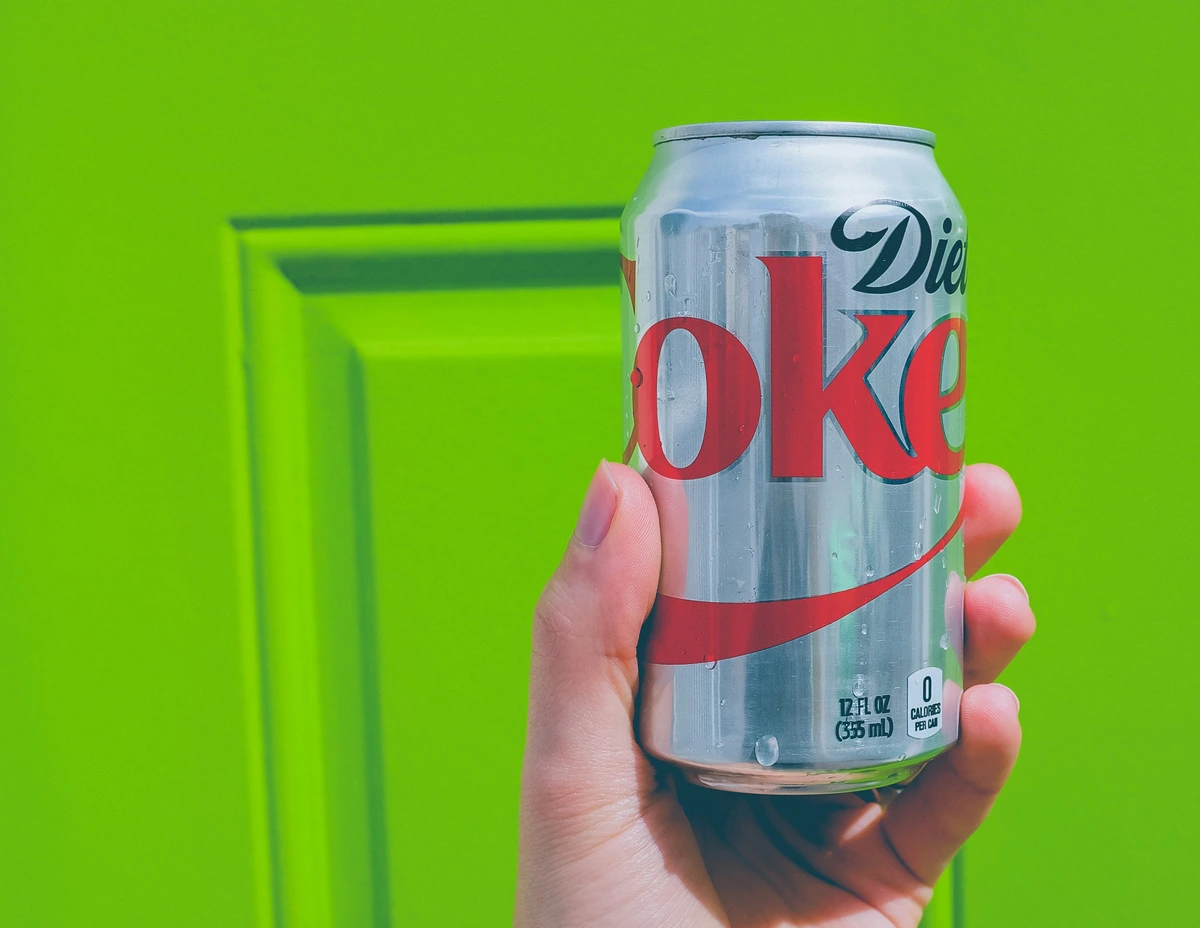Can Switching to Diet Soda Help You Lose Weight?
If you're anything like me, you've probably stood in the grocery store aisle, staring at those shiny cans of Diet Coke, wondering if making the switch could be your ticket to finally dropping those stubborn pounds. I mean, zero calories sounds like a dream come true, right? But then there's that nagging voice in the back of your head asking, "Is this stuff actually good for me?"
Well, grab your favorite beverage (diet or otherwise), and let's break down everything you need to know about diet soda and weight loss. Spoiler alert: the answer isn't as straightforward as those zero-calorie labels might suggest!
The Promise of Zero Calories
Let's start with the obvious appeal. Regular soda is basically liquid candy – a single 12-ounce can of Coca-Cola packs about 140 calories and 39 grams of sugar. That's nearly 10 teaspoons of sugar in one drink! If you're someone who enjoys multiple sodas a day (no judgment here – I used to be a three-can-a-day kind of gal), those calories add up FAST.
Enter diet soda, stage left. With zero calories and zero sugar, it seems like the perfect solution. You get the fizzy satisfaction, the caffeine kick, and that sweet taste without any of the caloric consequences. In theory, switching from regular to diet soda should create a calorie deficit that leads to weight loss. If you're cutting out 420 calories a day (that's three regular sodas), you could theoretically lose about a pound every eight or nine days without changing anything else.
Sounds amazing, doesn't it? Well, hold onto your hat because the reality is a bit more complicated.
Does Switching to Diet Soda Actually Work for Weight Loss?
Here's where things get interesting. The research on diet soda and weight loss is, frankly, all over the map. Some studies show that people who switch to diet drinks do lose weight, while others suggest diet soda drinkers might actually gain weight over time. Confused yet? Let me break it down.
The Case FOR Diet Soda
Several studies have shown that when people replace regular soda with diet versions as part of an overall weight loss plan, they do tend to lose more weight. A 2012 study found that participants who drank diet beverages lost about 13% of their body weight over 12 weeks, compared to 9% for those who drank water. Another study from 2014 showed similar results.
The key phrase here is "as part of an overall weight loss plan." When diet soda is used as a tool within a broader strategy of calorie reduction and increased physical activity, it can be helpful. It's especially useful for people who really struggle to give up their soda habit entirely.
The Case AGAINST Diet Soda
Now for the plot twist. Some research suggests that diet soda might actually sabotage your weight loss efforts. A long-term study from the University of Texas found that people who drank diet soda daily had a 70% greater increase in waist circumference over nearly 10 years compared to non-drinkers.
Wait, what? How can zero calories lead to weight gain? Scientists have a few theories:
1. The Compensation Effect: When we drink diet soda, our brain might think, "Hey, I saved calories on my drink, so I can have that extra slice of pizza!" This psychological phenomenon can lead to overeating in other areas.
2. Sweet Taste Confusion: Artificial sweeteners are hundreds of times sweeter than sugar. Some researchers believe this intense sweetness might mess with our taste buds and make us crave even more sweet foods.
3. Metabolic Changes: This is where it gets really wild. Some studies suggest that artificial sweeteners might actually change how our bodies process glucose and could potentially lead to insulin resistance. The research is still evolving, but it's definitely something to consider.
4. Gut Microbiome Disruption: Emerging research indicates that artificial sweeteners might alter our gut bacteria in ways that could promote weight gain and metabolic issues. Our understanding of the gut microbiome is still in its infancy, but this connection is fascinating (and a little scary).
Is Diet Soda Bad for You? Let's Talk Health Concerns
Beyond weight loss, there are other health considerations when it comes to diet soda. And honestly, this is where I started to reconsider my own diet soda habit.
Artificial Sweeteners: The Good, The Bad, and The Controversial
Diet sodas typically contain artificial sweeteners like aspartame, sucralose, or saccharin. These have been approved by the FDA and are generally considered safe in moderate amounts. However, "safe" doesn't necessarily mean "healthy."
Some potential concerns include:
- Headaches and migraines: Some people report increased headaches with aspartame consumption
- Digestive issues: Artificial sweeteners can cause bloating, gas, and diarrhea in sensitive individuals
- Dental health: While diet soda doesn't have sugar, it's still acidic and can erode tooth enamel
The Bigger Picture Health Concerns
Research has linked regular diet soda consumption to several health issues:
- Increased risk of stroke and heart disease: A 2019 study found that drinking two or more diet drinks per day was associated with an increased risk of stroke and heart disease in women over 50
- Type 2 diabetes risk: Despite having no sugar, some studies suggest diet soda consumption might increase diabetes risk (though the mechanism isn't fully understood)
- Bone health: The phosphoric acid in both regular and diet sodas may interfere with calcium absorption
Now, before you panic and dump all your diet soda down the drain, remember that correlation doesn't equal causation. People who drink a lot of diet soda might have other lifestyle factors that contribute to these health issues.
My Personal Diet Soda Journey (And What I Learned)
Time for some real talk. I was a diet soda addict for years. Diet Coke was my morning coffee, my afternoon pick-me-up, and my dinner companion. I thought I was being so smart by choosing the zero-calorie option.
But here's what I noticed: Despite drinking diet soda religiously, I wasn't losing weight. In fact, I found myself constantly craving sweets and feeling bloated. When I finally decided to cut back (not quit entirely – let's be realistic here), some interesting things happened:
- My sweet cravings decreased significantly
- I felt less bloated
- I started enjoying the natural sweetness in foods like fruit more
- My afternoon energy crashes became less severe
Did I magically drop 20 pounds? Nope. But I did feel better overall, and it became easier to make healthier food choices throughout the day.
So, Should You Switch to Diet Soda?
Here's my honest take after all this research and personal experience: Diet soda can be a useful tool for weight loss, but it's not a magic bullet. If you're currently drinking multiple regular sodas a day, switching to diet versions will definitely cut calories. That's just math.
However, if you're expecting diet soda to be your weight loss salvation while you continue eating poorly and avoiding exercise, you're going to be disappointed. And if you find that diet soda makes you crave more sweets or feel bloated and uncomfortable, it might be doing more harm than good.
My Recommendations for Diet Soda and Weight Loss
If you're considering making the switch to diet soda, here's my advice:
1. Use it as a stepping stone: Think of diet soda as a transition tool rather than a permanent solution. Use it to break your regular soda habit, then gradually reduce your intake.
2. Pay attention to your body: Notice how diet soda makes you feel. Do you get headaches? Feel more hungry? Crave sweets? Your body will tell you if it's not working for you.
3. Don't use it as an excuse: "I had a diet soda, so I can eat this entire bag of chips" is not a winning weight loss strategy.
4. Consider alternatives: Sparkling water with a splash of fruit juice, unsweetened iced tea, or good old H2O are all better choices in the long run.
5. Moderation is key: If you love diet soda and it doesn't seem to negatively affect you, having one occasionally probably isn't going to derail your health. It's the multiple-cans-per-day habit that's more concerning.
The Bottom Line
Can switching to diet soda help you lose weight? Maybe. It depends on your overall diet, lifestyle, and how your body responds to artificial sweeteners. It's certainly not the worst thing you can do for your weight loss journey, but it's also not the best.
If you're serious about ditching weight fast (and keeping it off), focus on the fundamentals: eating whole, nutritious foods, controlling portions, staying active, and drinking plenty of water. If diet soda helps you transition away from regular soda, great! Just don't expect it to do all the heavy lifting for you.
Remember, sustainable weight loss isn't about finding the perfect hack or trick – it's about making consistent, healthy choices that you can maintain long-term. And sometimes, that means enjoying a diet soda at the movies or a regular soda at a birthday party without guilt.
Stay strong, stay healthy, and remember – you've got this!
xo, Chrissy
Disclaimer: This blog post is based on personal experience and research. Always consult with a healthcare professional before making significant changes to your diet, especially if you have underlying health conditions.

